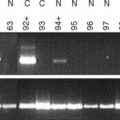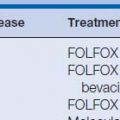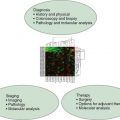11 Preoperative Evaluation
Preoperative Preparation
The preoperative period is a critical time for the collection and collation of pertinent patient information that is relevant and necessary for any patient scheduled for surgery. Much of this information is important for the appropriate planning of resources and disposition of patients. For example, if patient comorbidity requires postoperative intensive care unit (ICU) monitoring, this information is useful because it is acquired proactively without waiting for the day of surgery for determination. Comprehensive collection of preoperative laboratory studies, tests, and consultant notes are critical for smooth workflow on the day of surgery, thus greatly reducing delays, cancellations, and frustration for all, including patients. The following four major types of preoperative models are in use today. (A more complete description of these models can be found in Preoperative Systems by Young and Gibby.1)
Effective preoperative preparation essentially helps to establish appropriate risk stratification of patients. Waiting until the day of surgery to define surgical risk stratification is too late. Creating specific care plans requires careful assignment to appropriate risk stratagems; presently even most pay-for-performance measures are pushing all providers to identify at-risk patients. It is impossible to adequately allocate patients into appropriate risk classification without an assessment of patient comorbidities as well as recognized surgical risk categories. The American Society of Anesthesia (ASA) has established a risk stratification system based on medical conditions that have intermediate benefit in proactively identifying a patient’s surgical risk. Referred to as the ASA classification system, patients are classified from ASA I to ASA VI (Table 11-1). Unfortunately, this classification is very subjective and has not been shown to be extremely effective in assigning risk.5 An alternative risk model was proposed by Pasternak6 and defines five categories of risk based on predicted blood loss. Neither of these two categories has ever been demonstrated to correlate with outcomes, but for purposes of risk stratification, some methodology is required. Most colorectal surgery should qualify as being associated with intermediate risk; however, certain patients may in fact have high surgical risk, particularly those with major vascular involvement. Patients’ medical comorbidities are not as simply defined. The presence of major cardiac, pulmonary, renal, or other organ dysfunction has serious implications regarding the postoperative outcomes of patients. The next section identifies and discusses specific concerns regarding particular systems:
Table 11-1 American Society of Anesthesia Classification System
| ASA | Definition |
|---|---|
| I | Primarily healthy patients with no existing comorbid conditions; typically taking no medications and very active physically. |
| II | Patients with well-controlled medical problems. This may include patients on no medications but who are obese or smoke cigarettes. No acute exacerbations of their medical conditions prior to surgery. |
| III | Patients with established medical conditions that are not well controlled. May also include patients with multiple medical conditions such as patients with a previous myocardial infarction, diabetes, obesity, and renal insufficiency. |
| IV | Patients with extensive medical problems who have a definitive possibility of not surviving this operation or hospitalization. |
| V | Patients who are moribund and for whom heroic surgery may be the only option. |
| VI | Brain-dead organ harvest patients. No chance of survival. |
One of the authors (JS) has created a preoperative roadmap that has been deployed at the Johns Hopkins Medical Institutions and that provides some guidance for surgeons regarding how to order preoperative testing as well as how to determine which patients should be seen in a preoperative evaluation clinic (PEC). This roadmap contains sections that define generic testing guidelines (Box 11-1). Additional recommendations based on types of comorbidities are provided in Table 11-2. This roadmap also has recommendations regarding which medications to hold versus medications to instruct patients to take on the morning of surgery (Table 11-3). More and more often, we are advocating that patients take their morning medications before surgery, specifically medications such as cardiac medication, statins, and proton pump inhibitors. Other medications such as oral hypoglycemic agents are currently being recommended to be held on the morning of surgery. In fact, one of the new Surgical Care Improvement Project (SCIP) measures targets the administration of beta blockers within 24 hours of surgery to patients currently taking these medications.7
Box 11-1 Recommended Testing for All Patients Scheduled for Low- or Intermediate-Risk Surgery
Do
Table 11-2 Medical Conditions with Specific Testing Recommendations
| Condition | Testing Recommendation |
|---|---|
| Diabetes | Fasting basic metabolic profile (BMP); electrocardiogram (ECG) for all patients older than 20 years |
| Hypertension or cardiac disease | BMP; ECG; consider echocardiography (ECHO), stress test, and/or cardiac evaluation if symptoms significant |
| Chronic obstructive pulmonary disease | Pulmonary function tests (PFTs) if symptoms are significant |
| Anemia and/or bleeding history | Heme 8; Consider prothrombin time (PT). Auto-donors need to have hemoglobin/hematocrit (Hb/HCT) after donation (morning of surgery should be adequate) |
| Liver dysfunction or malnutrition | Comprehensive metabolic profile (CMP), Heme 8, PT |
| High-risk surgical procedures (major blood loss expected) | Heme 8; CMP, PT; consider ECHO, stress test, and/or cardiac evaluation if medical condition warrants |
| Poor exercise tolerance | Heme 8; CMP; ECG; primary medical doctor evaluation; consider ECHO, stress test, and/or cardiac evaluation |
| Morbid obesity | BMP; CMP; ECG; consider ECHO (must rule out pulmonary hypertension), stress test, and/or cardiac evaluation |
| End-stage renal disease (dialysis patient) | Postdialysis lab tests to include Heme 8 and BMP at a minimum; sodium/potassium (Na/K) on morning of surgery |
| Pacemaker | Must be interrogated within 6 months, and have report on chart. Pacer-dependent patients and those with implantable cardioverter defibrillator (ICD) devices must be interrogated within 3 months. ICD patients need device turned off morning of surgery |
Table 11-3 Medications to Hold on Day of Surgery
| Class | Medication | Recommendation |
|---|---|---|
| Oral hypoglycemic agents | Metformin (Glucophage), pioglitazone (Actos), glyburide, tolazamide (Tolinase), rosiglitazone (Avandia), glimepiride (Amaryl), all others | Hold at least 8 hours before surgery. Recommend holding morning dose on day of surgery |
| Diuretics | Furosemide (Lasix), hydrochlorothiazide (HCTZ) | Hold on morning of surgery, unless prescribed for congestive heart failure (CHF) (CHF patients should take their morning dose of diuretics) |
| ACE inhibitors/ARBs | Lisinopril, amlodipine/benezepril (Lotrel) captopril, hydrochlorothiazide/benazepril, (Lotensin), fosinopril (Monopril), lisinopril/hydrochlorothiazide (Prinzide), candesartan cilexetil (Atacand), olmesartan medoxomil (Benicar), valsartan (Diovan), irbesartan/hydrochlorothiazide (Avalide) | Hold on morning of surgery, unless prescribed for CHF (CHF patients should take their morning dose of medications) |
| Insulin | NPH, Regular | Hold insulin on morning of surgery. Bring insulin with patient to hospital |
| Alternative therapies | Herbal supplements | Stop at least 24 hours before surgery |
ACE, angiotensin-converting enzyme; ARBs, angiotensin receptor blockers.
Stay updated, free articles. Join our Telegram channel

Full access? Get Clinical Tree







